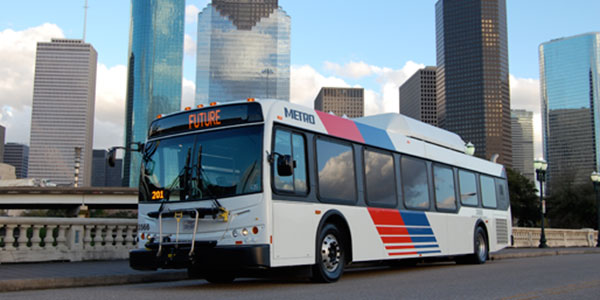Texas’ metropolitan public transportation systems are set to receive more than $1.01 billion in recovery funds from the $25 billion committed to the nation’s public transportation systems in the Coronavirus Aid, Relief, and Economic Security (CARES) Act.
 The Federal Transit Administration (FTA) announced on April 2 that $22.7 billion of the $25 billion will be allocated to large and small urban areas and $2.2 billion distributed to rural areas.
The Federal Transit Administration (FTA) announced on April 2 that $22.7 billion of the $25 billion will be allocated to large and small urban areas and $2.2 billion distributed to rural areas.
Texas cities with more than 1 million population each will receive $774.54 million with Dallas-Fort Worth-Arlington getting $318.63 million, Houston collecting $258.57 million, Austin accepting $104.06 million, and San Antonio getting $93.29 million.
Cities in Texas with 200,000 to 1 million population will receive a total of $118.68 million with El Paso getting $39.24 million, McAllen accepting $20.15 million, Corpus Christi collecting $16.36 million, Laredo getting almost $10 million, Lubbock receiving $9.6 million, Conroe-The Woodlands accepting $9.54 million, Brownsville – $7.6 million, and Killeen – $6.2 million.
Those cities with populations between 50,000 and 200,000 getting more than $119.8 million total in FTA funds are:
- Abilene – $5.14 million;
- Amarillo – $9.9 million;
- Beaumont – $6.26 million;
- College Station-Bryan – $8.83 million;
- Galveston – $4.67 million;
- Harlingen – $6.09 million;
- Lake Jackson-Angleton – $3.26 million;
- Longview – $3.81 million;
- McKinney – $8.84 million;
- Midland – $5.56 million;
- Odessa – $5.96 million;
- Port Arthur – $6.22 million;
- San Angelo – $4.24 million;
- San Marcos – $6.43 million;
- Sherman – $3.48 million;
- Temple – $3.87 million;
- Texarkana – $2.03 million;
- Texas City – $4.29 million;
- Tyler – $5.34 million;
- Victoria – $3.07 million;
- Waco – $7.95 million; and,
- Wichita Falls – $4.55 million.
Funding will be provided at a 100 percent federal share; no local match is required. Funds will be available to support capital, operating, and other expenses eligible under those programs to prevent, prepare for, and respond to COVID-19.
